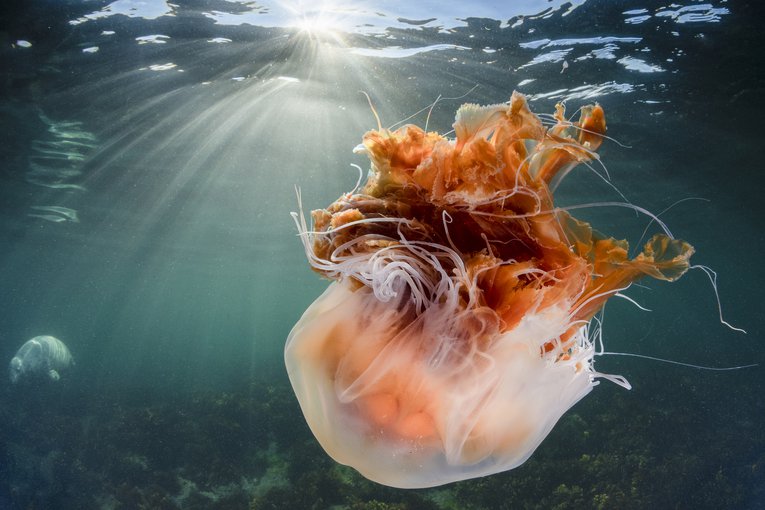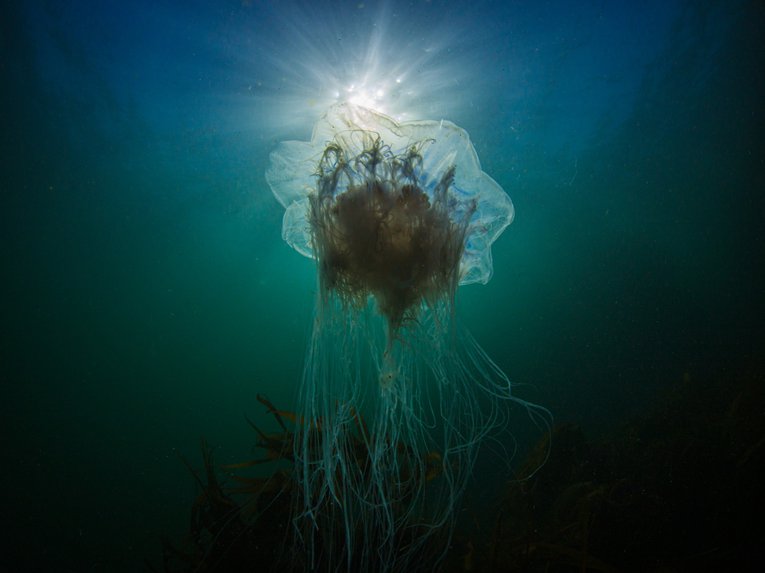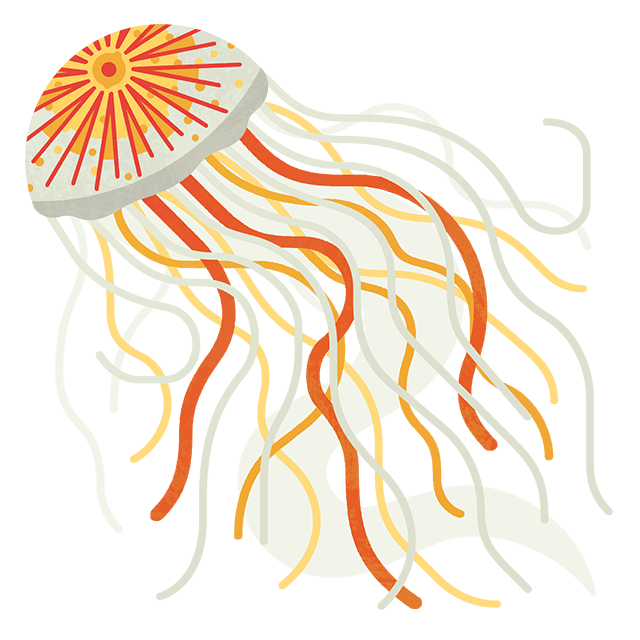
Spring has sprung as jellyfish bloom
3 minute read
Our temperate seas undergo huge ecological change when the warming rays of the sun finally linger that little bit longer on our highest latitudes. Jellyfish are one of the first animals to take advantage of spring's arrival.
Spring has always been a time of ecosystem explosion, which is true for the ocean as much as it is on land. Phytoplankton are growing old and replicating, starting a huge chain of events which influences the very air we breathe, let alone the complex food web that relies on those photosynthetic organisms.
However, now that our climate has changed, things don't seem to march to the beat of the drum anymore. As our climate changes further, scientists are racing to find out just what is going to happen to this seasonal show of biodiversity.
One player on this stage is the jellyfish. Jellyfish have been around since before - well - anything! Although we may never know for sure, scientists have narrowed it down to either jellyfish or sponges as the first recognised multicellular animal to ever exist.

Lion's Mane Jellyfish, Farne Islands, Scotland by Kirsty Andrews
Credit: Kirsty Andrews
So, as jellyfish have been bobbing around since year dot, it's safe to say that they are intrinsically linked to the seas. Jellyfish are simple creatures; a good gumbo of plankton, maybe the odd fish larva, some nice steady currents and a blast of warming sun, and the jellyfish is happy as can be.
Jellyfish are one of the first animals to take advantage of the big, spring plankton bloom. When surrounded by ever-increasing food and warmth, baby jellyfish quickly mature and grow.

Baby jellyfish by Windell Oskay
Credit: Windell Oskay
Jellyfish hunt anything small enough to be captured and stung by those stinging, venomous tentacles. To that extent, jellyfish feed on phytoplankton and zooplankton in equal measure. They rapidly hoover up not only the tiny green photosynthesisers, but also the myriad of eggs and larvae of fish, crustaceans, starfish, molluscs and, indeed, any other animal that relies on the plankton as a stage of reproduction.
Jellyfish are, therefore, chomping away at the base of a huge ecosystem, consuming the lowest common denominator and risking everything above it. But, with healthy fish stocks and rich fish biodiversity, the jellies quickly become food themselves.
Everything from tuna to turtles will feed on jellies of various sizes, so the population is well controlled. In fact, in this healthy and balanced situation, the jellyfish are doing a great job of linking the tiny, microscopic world of the plankton to the larger, faster-moving ocean around them.

Moon Jellyfish by Mark Kirkland
Credit: Mark Kirkland
These animals can multiply at a face-meltingly fast rate and, in doing so, consume increasingly more plankton. Should this happen and should there be a 'perfect storm' of positive growing conditions for jellies, we could have a situation where the plankton is so hard hit that the bottom rung of the oceanic ecosystem is pretty much wiped out.
Oxygen concentration in the atmosphere could drop and carbon dioxide would spike, boosting the effects of our already changed climate. A large influx of meltwater from icecaps wouldn't just cause a change in sea level, but could physically shift the gulf stream away from the UK.
This doesn't take into account what would happen to fish stocks if a jelly maelstrom scoffed all the planktonic eggs and larvae. But there would certainly be fewer fish reaching adulthood to prey on those jellies come the following year.

Blue jellyfish by Mark Kirkland
Credit: Mark Kirkland
These are some outlandish events, but if we want to make sure they never happen, then keeping plenty of predators in the ocean and getting cracking on combatting the climate crisis is a good start. After all, every good blockbuster has a hero to save the day, and today that hero is you!
About 'The Blowfish'
Our Ocean Ambassador, Tom 'The Blowfish' Hird, has wowed audiences of all ages around the country as the world's ONLY heavy metal marine biologist with his science communication shows. He's the author of Blowfish's Oceanopedia - 291 Extraordinary Things You Didn't Know About The Sea, and is a wildlife expert appearing on CBBC, ITV, BBC, CITV, Discovery and Channel 4. He's also presented two series of the BBC Worldwide production, Fishing Impossible, which is shown across the globe. Tom hosed our online AGMs in 2020 and 2021.



